Sustainbility Management Strategy
Sustainability Purpose
In order to flourish in the future and establish itself as a global leader, CJ CheilJedang aims to build a virtuous cycle of "Nature to Nature". This entails bringing resources from nature to the table and returning them back to nature, by creating core values of "Wellness and Safety" and "Sustainable Environment“ throughout raw material procurement, production, consumption, and disposal.
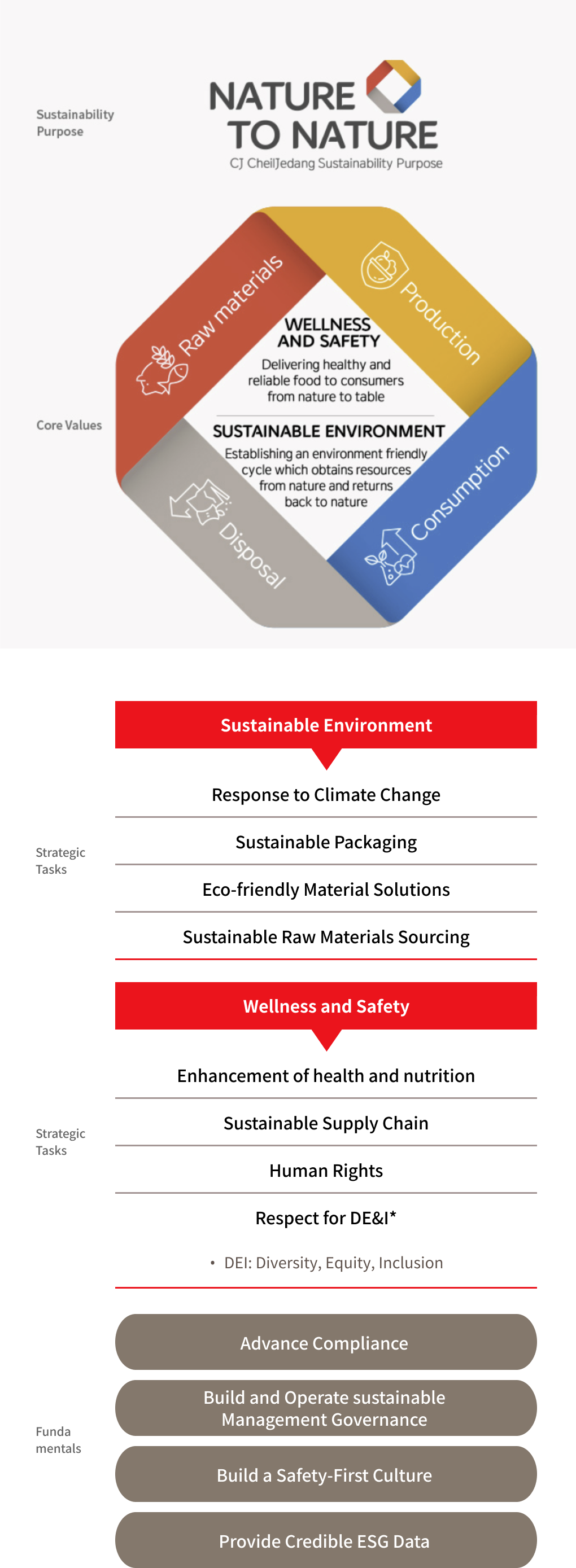
Key strategic tasks
The key strategic tasks are linked to our core values, Sustainable environment, Health and Safety. We selected tasks as follows, based on their external priority and impact on business.

Sustainability Governance
CJ CheilJedang has established a sustainability governance to proactively manage ESG risks with timely decision-making and to act in a consistent and comprehensive execution. As the highest decision-making body, the Corporate Sustainability Committee under the Board of Directors identifies various environmental, social and economic/governance issues. This process contributes to the development of the company's sustainability management strategy and direction. The committee reviews and approves performance and improvement measures.
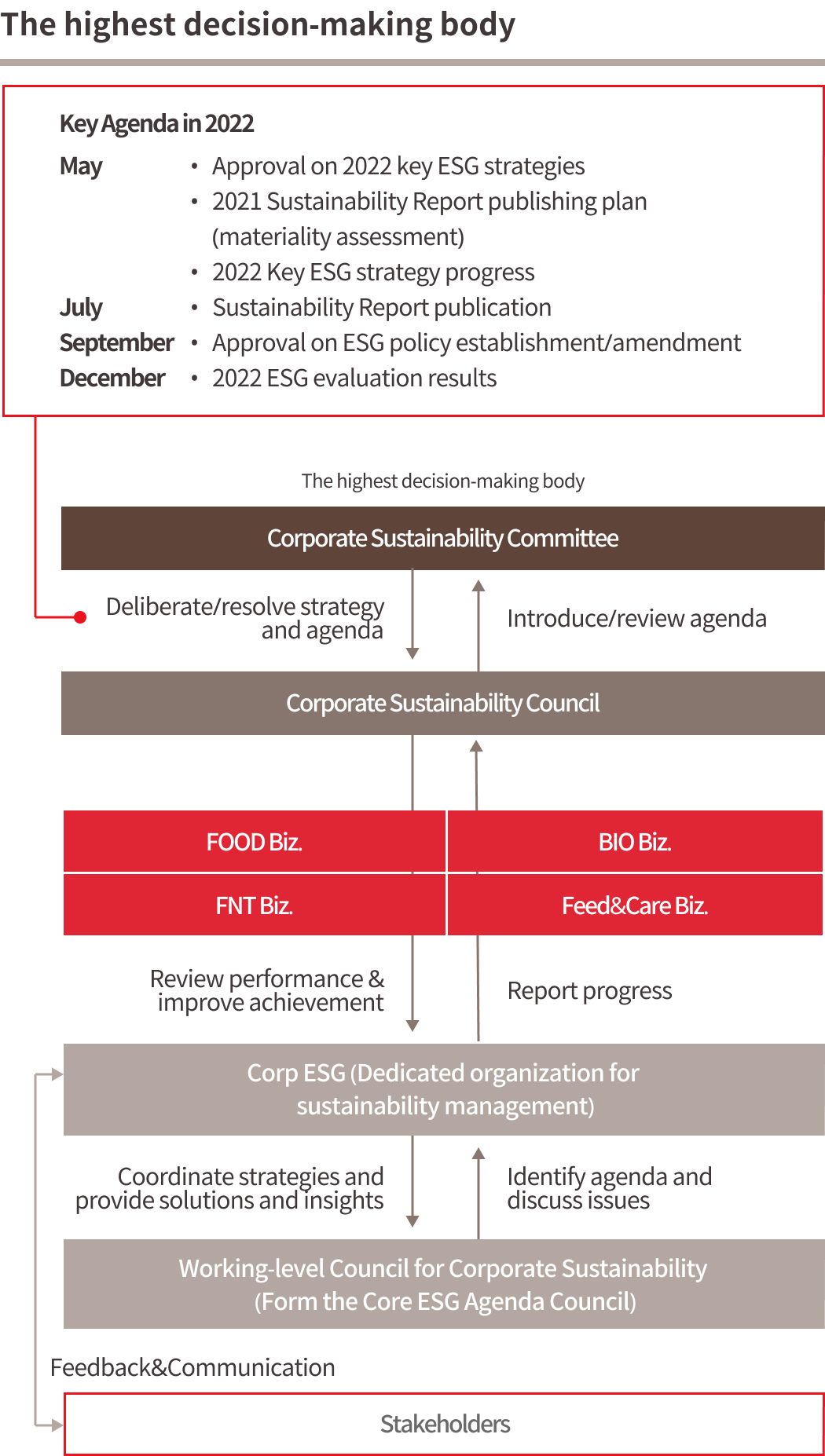
Risk Management
Risk Management System
CJ CheilJedang has established a system to categorize and identify potential risks in business management and to prevent them by continuously reviewing and managing related matters through the Board of Directors and its committees. The Board of Directors and its committees, the CEO and the Compliance Officer have dedicated support organizations that report directly to them. The support organizations are responsible for continuously monitoring and reporting on the status of corporate-wide risk management, and the Board of Directors and its committees are responsible for reviewing these reports.
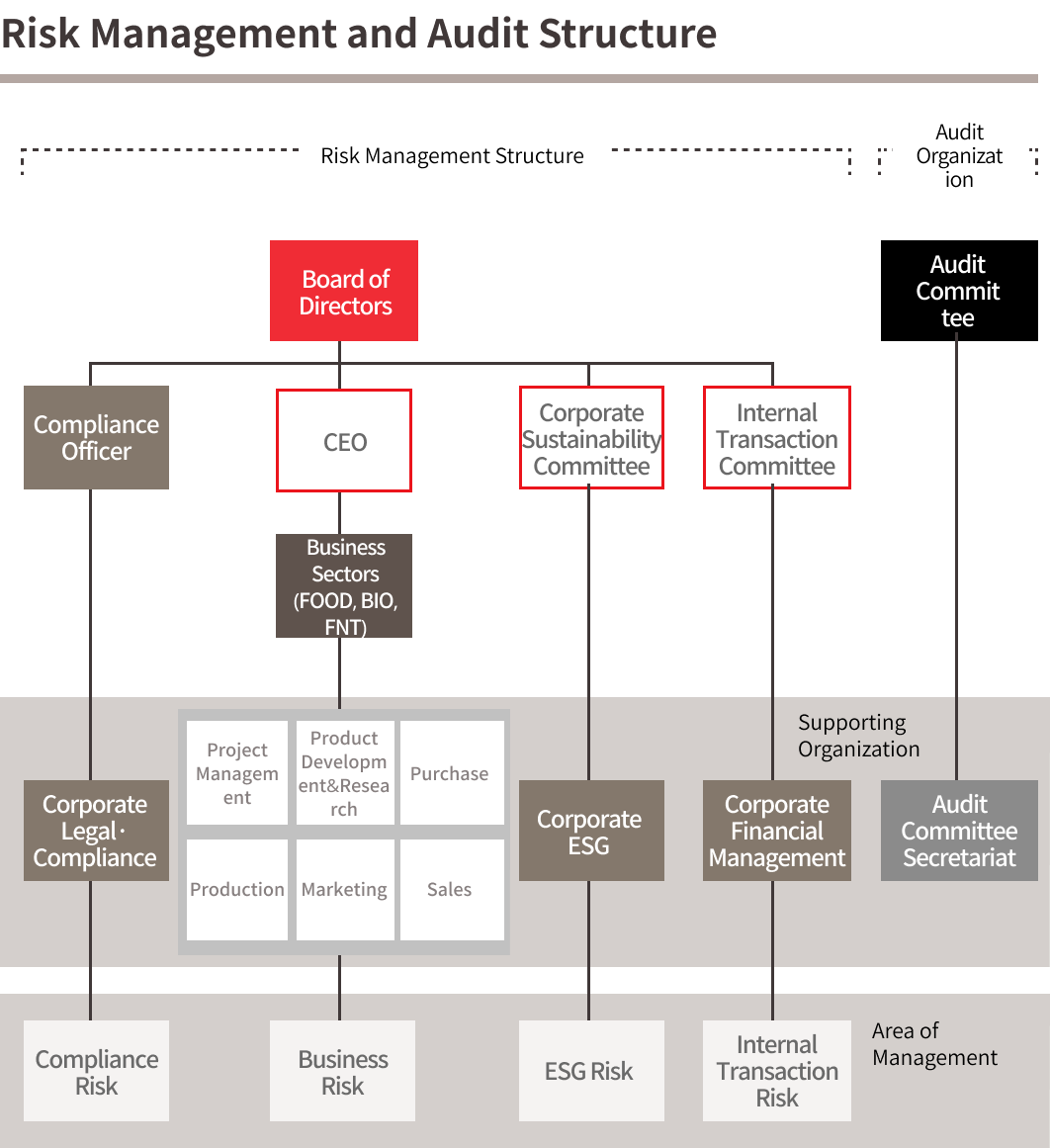
Management Establishment of
the ‘Compliance Management System (CMS 2.0)’
CJ CheilJedang established its CMS (Compliance Management System) 2.0 to forecast risks and take effective measures against them. To enhance existing compliance management, the new system identifies and categorizes potential risks that may occur in each organization. It establishes control measures for each risk and clarifies the R&R of the department in charge (designing, managing, and supervising essential control activities for each risk) and the lead department (conducting activities according to the design of the department in charge) so that the Compliance Team can act as the company-wide risk control tower to organically manage risk across the lead departments, departments in charge, as well as the BOD and its committees.
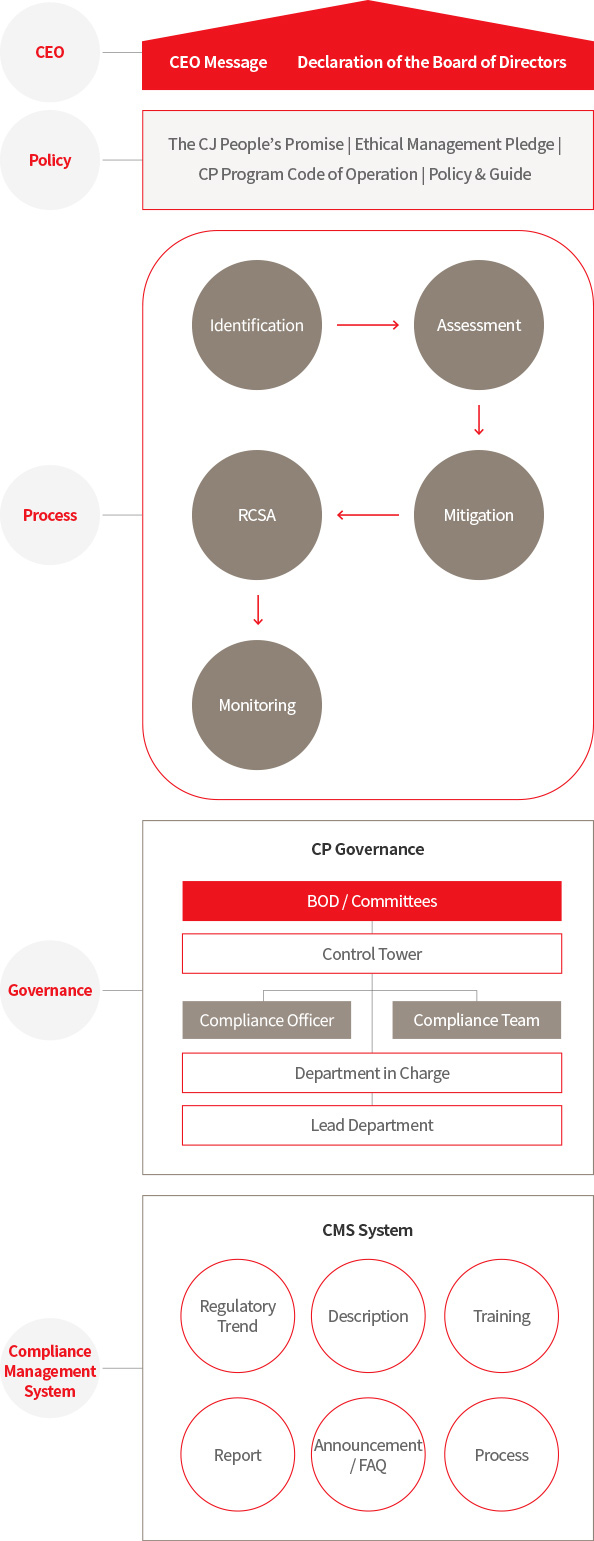
10 Compliance Obligations
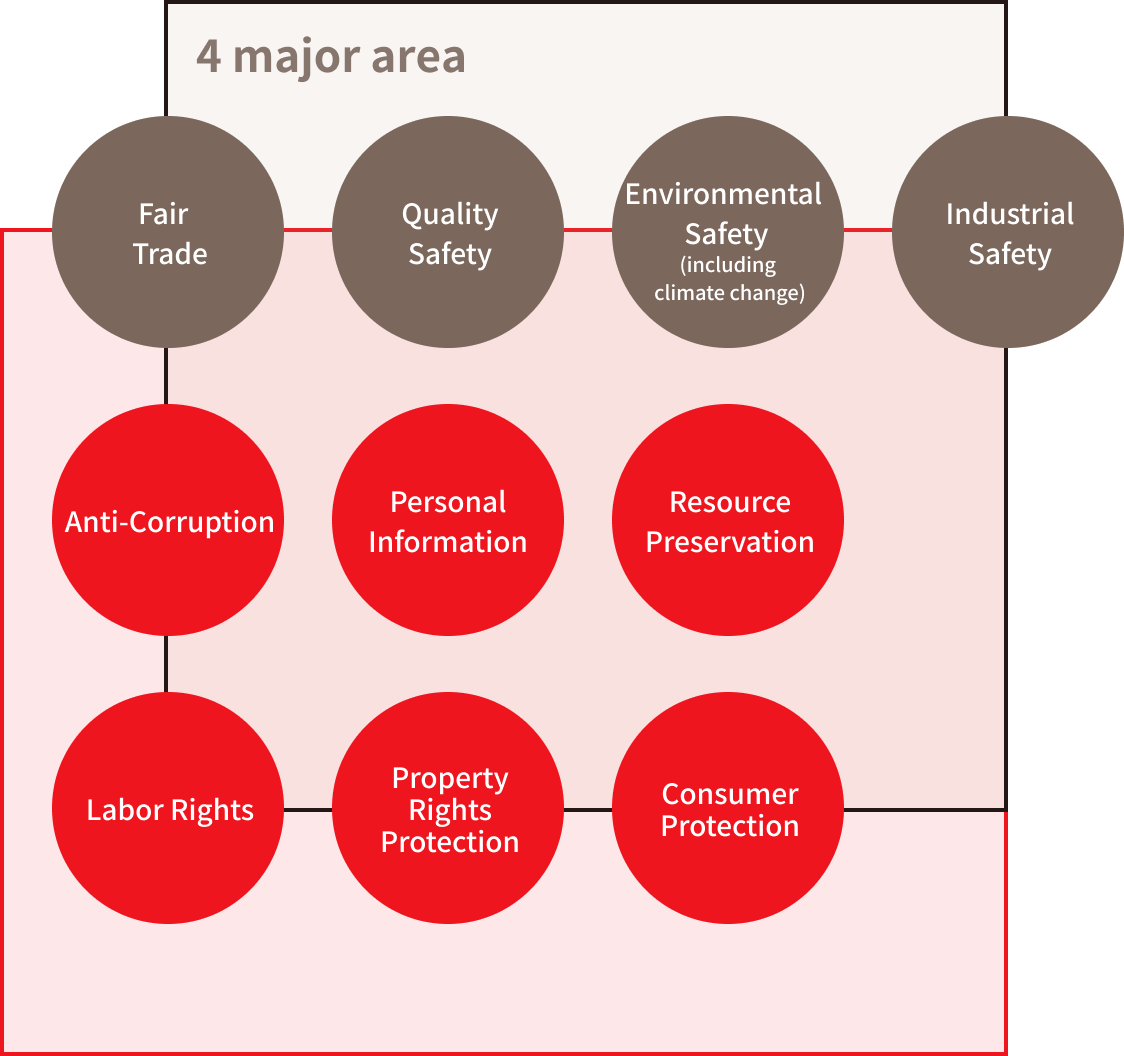
Key Tasks
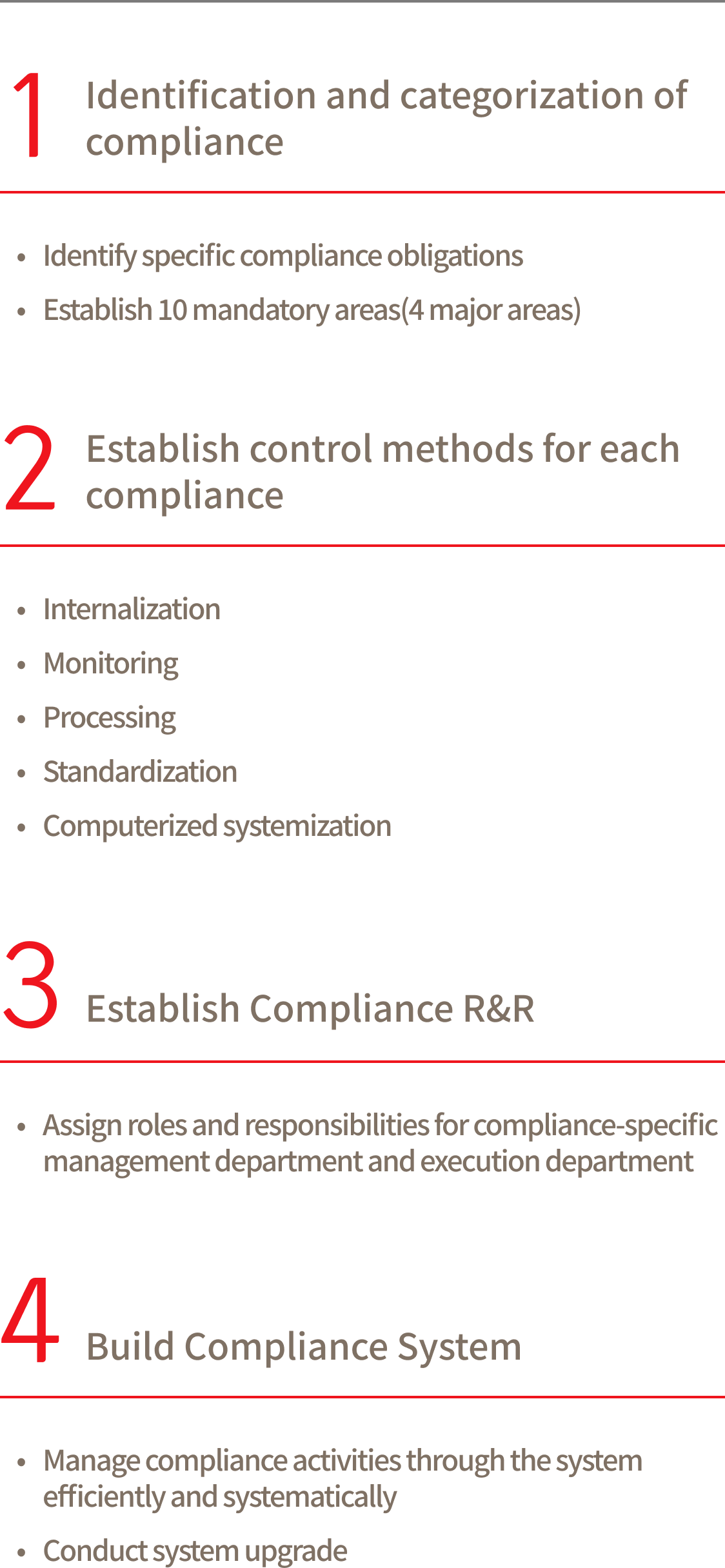
Current status of ISO 37301
(compliance management system)
Certification
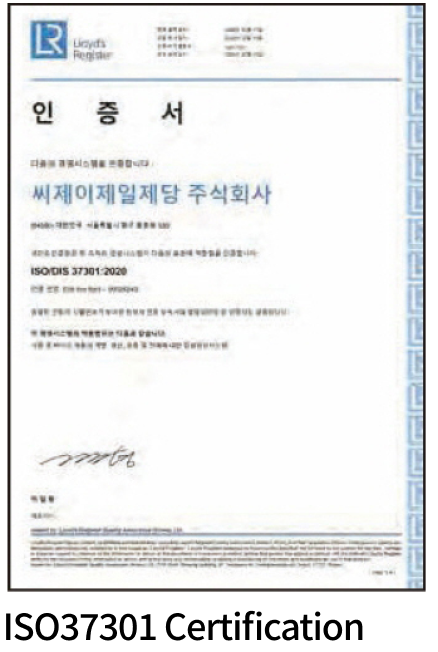
CJ CheilJedang maintains ISO 37301 compliance management certification by undergoing annual follow-up audits to ensure the effectiveness of its compliance management system. The results of the second follow-up audit in 2022 showed that we have satisfactorily met the compliance requirements and that employee awareness has improved. Our compliance management system based on CMS 2.0 was found to be effective in the department/business-specific compliance requirement and risk assessments and control measure reviews, thus maintaining the certification status. CJ CheilJedang also assists other CJ Group companies in obtaining ISO 37301 certification, thereby contributing to group-wide compliance management.
Strengthening Global Compliance
Management
As we expand our business globally, we are working to strengthen compliance management and response overseas. In 2022, we conducted compliance performance evaluations for global executives and focused on raising compliance awareness to promote an ethical management culture by establishing governance and providing training. In 2023, we plan to further strengthen our global legal affairs team and establish and promote a global compliance management system.
- Reinforce capacity of overseas departments and headquarters’ legal organizations and strengthen management
- Conduct monitoring of major overseas corporations
- Prepare global policy
- Strengthen networks with global law firms
- Link to ESG management
Risk Response Division
Situation Supervision Team CJ CheilJedang takes a three-step approach to potential risks in 16 categories, covering the environment (including climate change), industrial safety, quality, and processes, according to severity. We operate a company-wide risk management system to swiftly report and take countermeasures, within 24 hours, through the Risk Response Division whenever a risk is determined to be a major risk. In addition, we utilize an integrated risk management process to prevent any potential confusion or delays that may arise from a risk occurrence, initial recognition of the risk, or response measures.
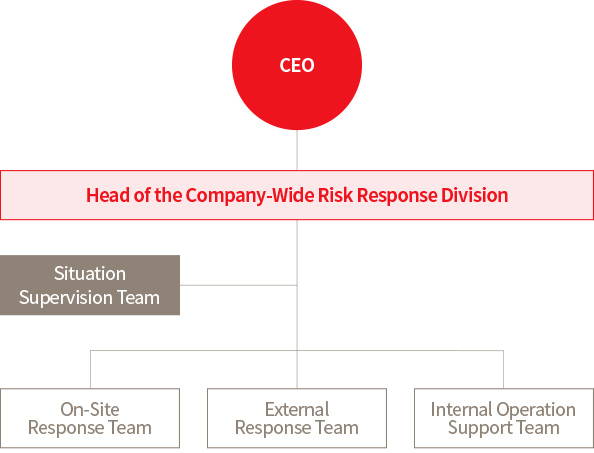
Management of Potential Risks
CJ CheilJedang is working to identify and preemptively respond to potential risks that can occur in its Food and BIO industries.
Potential risk 1.
Risk in raw material sourcing
Due to unpredictable changes in international affairs, such as regional closures in consequence of the COVID-19 pandemic, and production cuts in the grain belts due to the Russia-Ukrainian War, there are possibilities of disruptions in sourcing of raw materials for food ingredients. Furthermore, in the case of raw materials for food such as soybean, sugar, wheat, there are many cases where there is a high proportion of procurement from a specific country, so if decrease in products from bad weather or logistics risks occur in a specific country or region, it may lead to a global risk in procurement. These raw material sourcing risks can lead to delays in our production and cost burdens, which can make the delivery issues or put a heavy burden on corporate profitability.
CJ CheilJedang’s
response measures
Due to the prolonged COVID-19 pandemic, unstable supply of raw materials around the world, rising grain prices, and other uncertainties are continuously increasing. Accordingly, CJ CheilJedang is checking risks through regular communication with existing procurement channels. In addition, in order to respond to raw material risks caused by intermittent and unpredictable events(war, pandemic, etc.), we are operating a market information system through global network and increasing purchasing predictability. In addition, we are developing a price prediction model using AI technology and actively utilizing it for decision-making. Also, we are securing cost competitiveness and supply and demand stability through purchasing flexibility such as diversification of production areas and supply lines and improvement of purchasing structure.
Potential risk 2.
Risk in regulations related to
Carbon Neutrality
There may be regulatory risks in climate change such as carbon border tax based on the amount of carbon emissions in the Europe and the Americas. As of 2021, CJ CheilJedang’s overseas sales accounts for 61% with the proportion of overseas sales on a continuous rise. Therefore, it is necessary to meticulously respond to the ESG regulations in each region. Failure in responding to climate change may result in significant loss in operating profit, etc., and potentially fatal risks such as bans on business in such areas.
CJ CheilJedang’s
response measures
CJ CheilJedang aims to reduce its GHG emissions by 25% at all business sites by 2030, and ultimately achieve Carbon Neutral & Zero Waste by 2050. To this end, we are pursuing 100% conversion to renewable energy in the Americas and reduction of GHGs in our supply and sales chains. In addition, we are preparing environmental management policies in various areas such as waste and plastics, and are making efforts to reduce environmental impact throughout the company. These represent our preemptive preparations to prevent potential environmental risk factors.